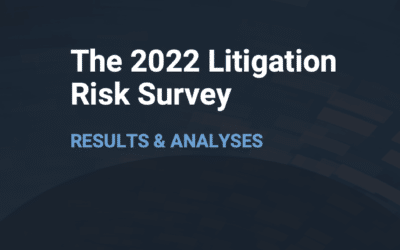In 2018, Mesa Laboratories sent faxes promoting its dental-industry-related services. After receiving one of those faxes, James Orrington, II, a Chicago-area dentist, filed a class action against Mesa alleging that Mesa’s unsolicited faxes were sent in violation of the TCPA and the Illinois Consumer Fraud and Deceptive Business Practices Act. Orrington also alleged that Mesa’s conduct constituted common-law conversion, nuisance, and trespass to chattels (for Mesa’s appropriation of Orrington’s and others’ fax equipment, paper, ink, and toner).
Five days after the Orrington complaint was filed, Mesa, through its broker, notified its insurer, Federal Insurance Company (“Federal”), of the complaint. At the time the Orrington action was filed, Mesa was insured by Federal under multiple insurance policies, including one providing that Federal “will pay damages … that the insured becomes legally obligated to pay” for, among other things, personal injury or property damage caused by a covered offense or occurrence.
The Federal insurance policy, however, contained a familiar exclusion:
With respect to all coverages under this contract, this insurance does not apply to any damages, loss, cost or expense arising out of any actual or alleged or threatened violation of…the United States of America Telephone Consumer Protection Act (TCPA) of 1991 (or any law amendatory thereof) or any similar regulatory or statutory law in any other jurisdiction.
Mesa’s theory of coverage was straightforward:
- Orrington’s nuisance claim—that by sending unwanted faxes, Mesa violated recipients’ property interests, including their right to privacy—brought the claim within the policy’s definition of personal injury;
- Orrington’s conversion claim—that Mesa converted ink, toner, and paper from recipients’ fax machines—brought the claim within the policy’s definition of property damages.
And according to Mesa, if any portion of the allegations in the Orrington complaint was potentially covered by the policy, then Federal was obligated to provide a complete defense to all claims asserted and indemnify Mesa for same.
In May 2018, Federal formally denied coverage for claims asserted in the Orrington action. Most pertinent to that rejection was Federal’s finding that the lawsuit was excluded from coverage “under the Unsolicited Communications Exclusion, which applies to TCPA claims and claims under similar statutory and regulatory laws.”
Mesa Settles the TCPA Lawsuit
In January 2019, the Orrington court preliminarily approved a settlement, pursuant to which Mesa agreed to pay $3.3m to settle the class claims. The court granted final approval a few months later.
Mesa Sues Federal
Following correspondence back and forth during which Federal continued to deny coverage, Mesa ultimately sued Federal in April 2019, alleging breach of contract, common law bad faith, and improper delay and denial of claims under Colorado law. Federal moved for judgment on the pleadings. In January 2020, the district court granted Federal’s motion. Mesa appealed to the Seventh Circuit.
The Seventh Circuit Weighs In
The Seventh Circuit homed in on the policy’s exclusion that ruled out coverage for damages, loss, cost, or expense arising out of any actual or alleged or threatened violation of the TCPA. The court found the following:
- The “alleged conduct underlying each claim was the same: Mesa sent unsolicited fax advertisements to Orrington’s office”;
- The “arising out of” language subjects the common-law claims to the exclusion;
- The trial court’s ruling must be affirmed.
According to the Seventh Circuit, this result was dictated by its decision earlier this year in Zurich Am. Ins. Co. v. Ocwen Fin. Corp., 990 F.3d 1073 (7th Cir. 2021). In Zurich, the Seventh Circuit concluded that the “arising out of” language “excludes the underlying conduct that forms the basis of the violation of an enumerated law, even if liability for that underlying conduct might exist under a legal theory that is not expressly mentioned in the policy exclusion (e.g., common-law invasion of privacy).” In other words, the “arising out of” phrase “presents a ‘but-for’ inquiry: if the plaintiff would not have been injured but for the conduct that violated an enumerated law, then the exclusion applies to all claims flowing from that underlying conduct regardless of the legal theory used.” Zurich, 990 F.3d at 1079.
***
If your company is confronting TCPA litigation, traditional insurance policies are unlikely to provide much (if any) coverage. As a result, you might want to consider alternatives, like class action settlement insurance (CASI). How does CASI work?
- CASI is purchased to transfer the settlement risk in existing class action litigation.
- Coverage is available for the full spectrum of consumer class cases including: statutory claims (like TCPA lawsuits), fraud, mislabeling, products liability, and other types of litigation.
- A policy covers all valid claims made by class members under the settlement agreement.
- There is no deductible or self-insured requirement, just a one-time premium that transfers 100% of the aggregate settlement liability.
***
Are you looking to resolve a class action on a claims-made basis? If so, contact us to learn how we can help you to mitigate, cap, and transfer the financial risk of settlements in existing class action litigation.







